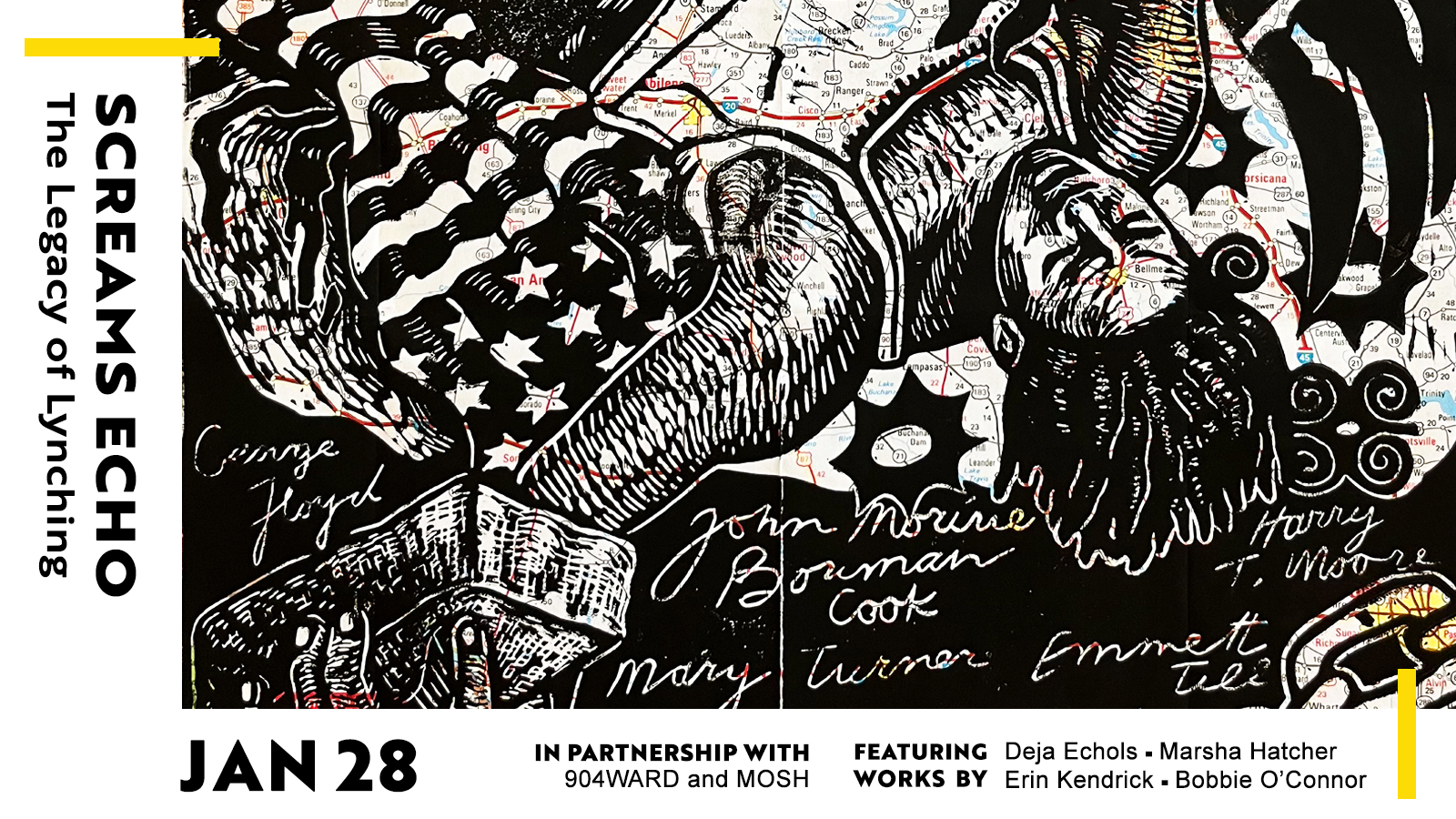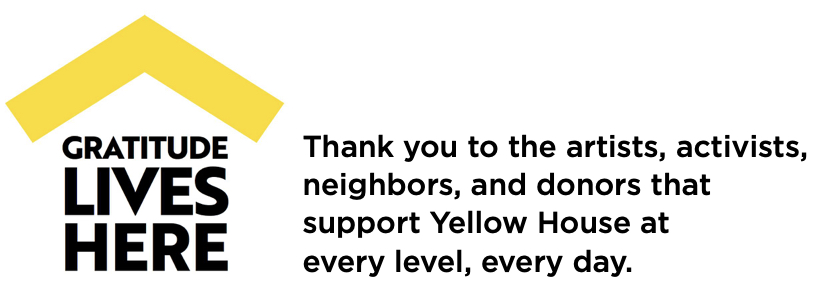
“And the screams echo through the centuries.”
What are the costs to all of us for not reckoning with the history of racial terror lynching in our community? How does our past continue to feed structural racism today? How can art shine a light during a time when those in power are trying to legislate lies? And what are the possibilities for healing, repair, and reimagining when we choose to face the wretched truth?
In this exhibition the truth of one of the darkest chapters of our shared history is offered up through works of art, recorded facts, and intimate objects charged with memory. At the heart of this narrative sits the lynchings of eight men in Duval County between the years of 1909-1925. Their murders and the broader context of violence, white supremacy, and racism have echoes today as seen in the families impacted across generations through ongoing segregation, economic isolation, and a society reeling from decades of erasure, unjust policies, and false teachings.
Artists Deja Echols, Erin Kendrick, Marsha Hatcher, and writer Bobbie O’Connor transform Yellow House into a sacred space where we are given permission to breathe in not only the stories of the victims, but also the lingering legacy of those losses, their relevance today, and the resilience of African Americans throughout our history. Rigorous research by historians throughout our community informs the art, while inspiration also comes from the literary and performance piece written by O’Connor entitled “Screams Echo” which links the fictional lynching of a boy named Charlie with the modern-day murder of Trayvon Martin. This story of women remembering across time has served as a touchstone for the co-creation of this exhibition.
In addition, the historic record is provided through informational panels created through a partnership between MOSH and the Jacksonville Community Remembrance Project (a project of 904WARD and the community-based work of the Equal Justice Initiative). Space is also given over to share the experiences of two years of soil collections that have taken place in our community to remember the eight men lynched here and to inspire collective action. A community altar will hold the jars of soil collected, photos by Catye Evoniuk from the ceremonies, personal objects from the artists, and space for all entering the gallery to make offerings to honor these ancestors.
This exhibition and related programs are intentional in pushing back against the attacks on teaching truth, ongoing state sanctioned violence, and the divisive narratives that taint the public square. We welcome you to this gracious and courageous space for us to grieve and to do the work of repair, by first acknowledging the screams that echo across time and place and beckon us to build a more equitable, peaceful, and just world.
Due to the pandemic and the reverent nature of this exhibition the opening weekend is less a reception and more an opportunity to breathe in the content and share space with one another while staying safe. As you bring yourself, feel free to bring an offering for the ancestor altar that honors those lost and proclaims our commitment to our shared humanity – handwritten words, photos, fruit, a book, stones, shells – anything that adds a bit of you to the community memorial.
If you can’t make it during our opening weekend, come on through every Wednesday from 12-7pm or Saturdays 11am-2pm. We will also soon be sharing a robust calendar of artist talks, community conversations, and musical performances with our collaborators – both virtual and in person.
Masks are required to visit inside Yellow House. Be well!
The set of eight illustrated text panels included in this show are a spinoff of the MOSH exhibition, The Legacy of Lynching: Confronting Racial Terror in America. This material was created in collaboration with the Jacksonville Community Remembrance Project, an initiative of 904WARD, and is supported in part by grants from the Community Foundation for Northeast Florida and the Florida Humanities Council with funds from the National Endowment for the Humanities. Special thanks to Baptist Health for additional support.




